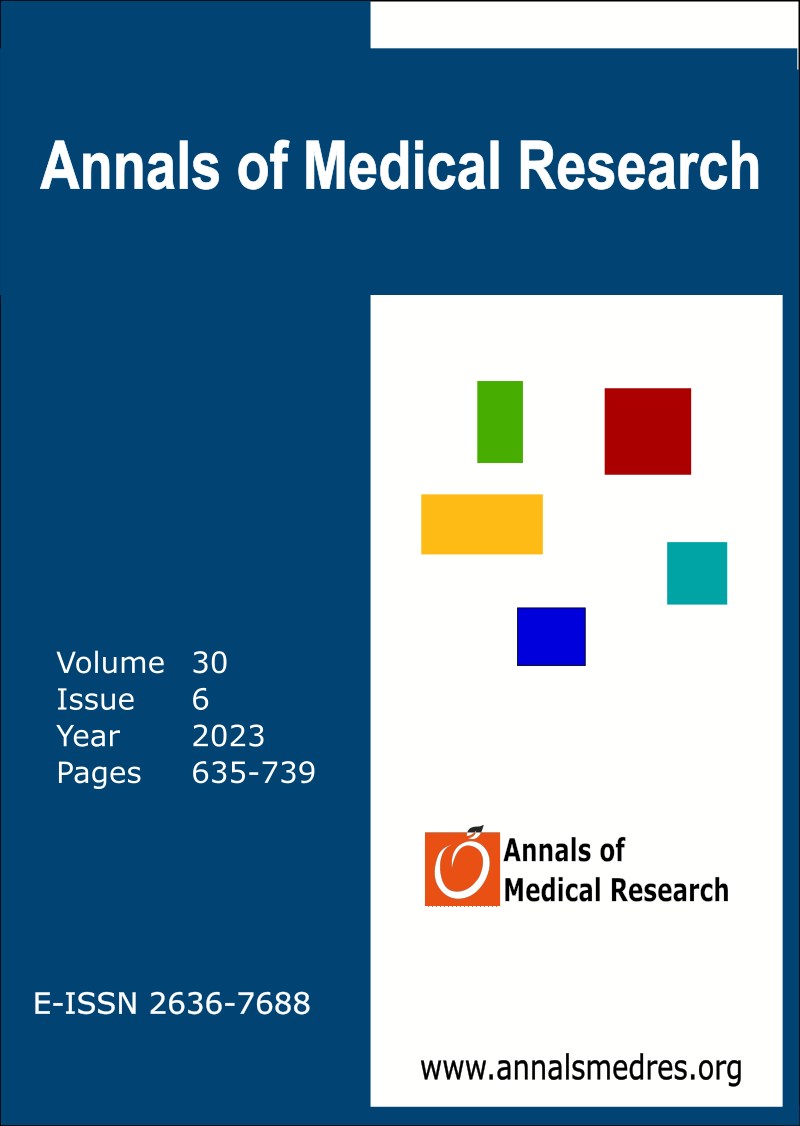The importance of cytochrome c in the physiopathology of acute ischemic stroke
Keywords:
Acute stroke treatment, Brain ischemia, Oxidative stress, Stroke mechanism, NeuropathologyAbstract
Aim: The neurons are the cells most susceptible to ischemic events. The exact mechanisms of cellular damage due to hypoxia and ischemia and the role of cytochrome c in this case have not been fully explained in detail. The aim of this study was to investigate cytochrome c in patients with acute ischemic stroke.
Materials and Methods: The cytochrome c levels in venous blood received from 56 patients with acute ischemic stroke admitted to our hospital neurology clinic and 30 healthy volunteers have been studied. Infarct volume and arrival of patients with acute ischemic stroke were also recorded in the NIHSS.
Results: There was no significant difference between the two groups. In addition, there was no statistical association between cytochrome c levels and infarct volume and arrival NIHSS in patients with acute ischemic stroke.
Conclusion: Cytochrome c plays a very important role in complex cascades in the process leading to neuronal death from acute brain vascular occlusion. Brain ischemia; endogenous neuroprotective mechanisms are activated, and cytochrome c is removed from the environment and kept within normal limits. In addition, blood cytochrome c levels in patients with acute ischemic stroke are not a biochemical marker for the diagnosis and the severity of disease.
Downloads
Published
Issue
Section
License
Copyright (c) 2023 The author(s)

This work is licensed under a Creative Commons Attribution-NonCommercial-NoDerivatives 4.0 International License.
CC Attribution-NonCommercial-NoDerivatives 4.0






